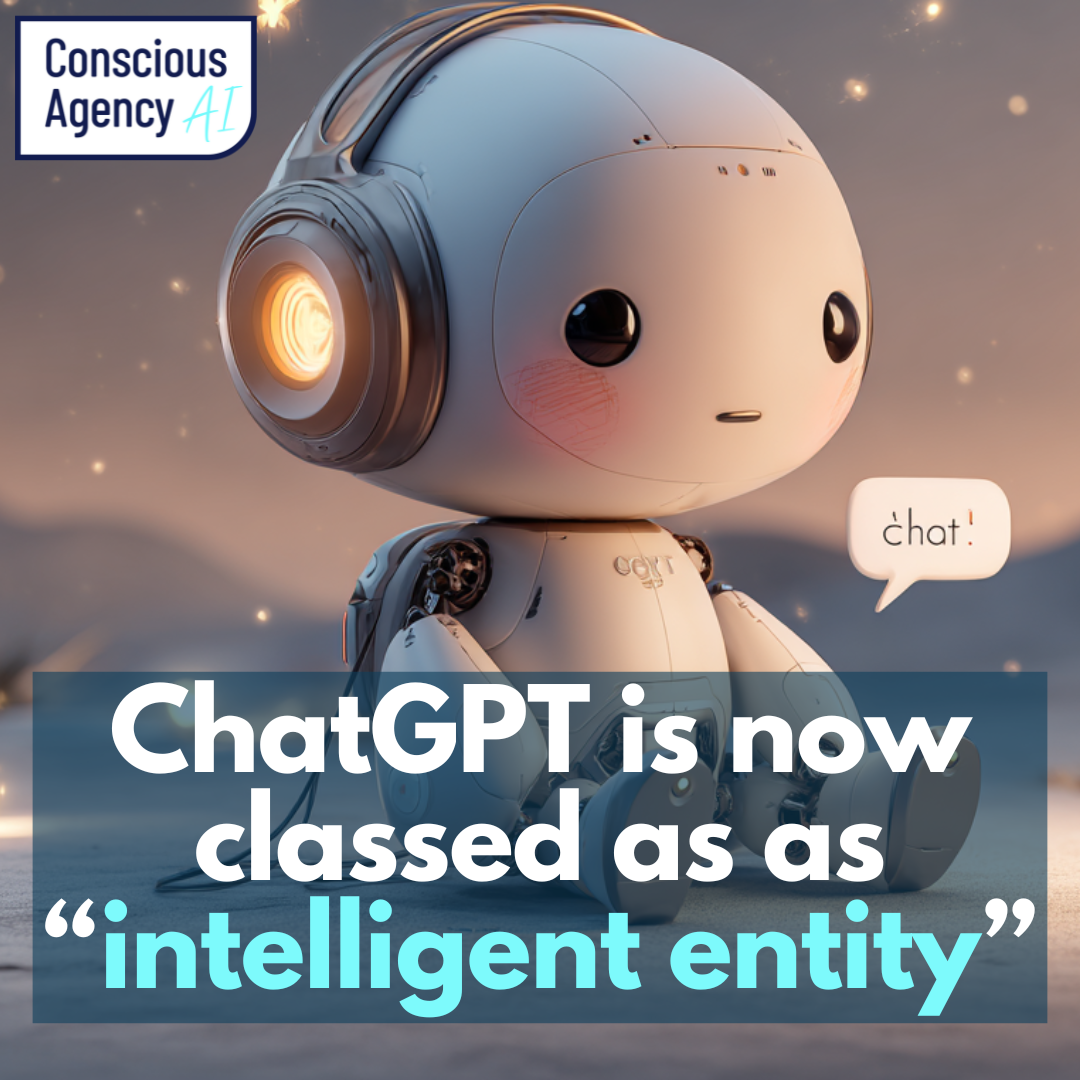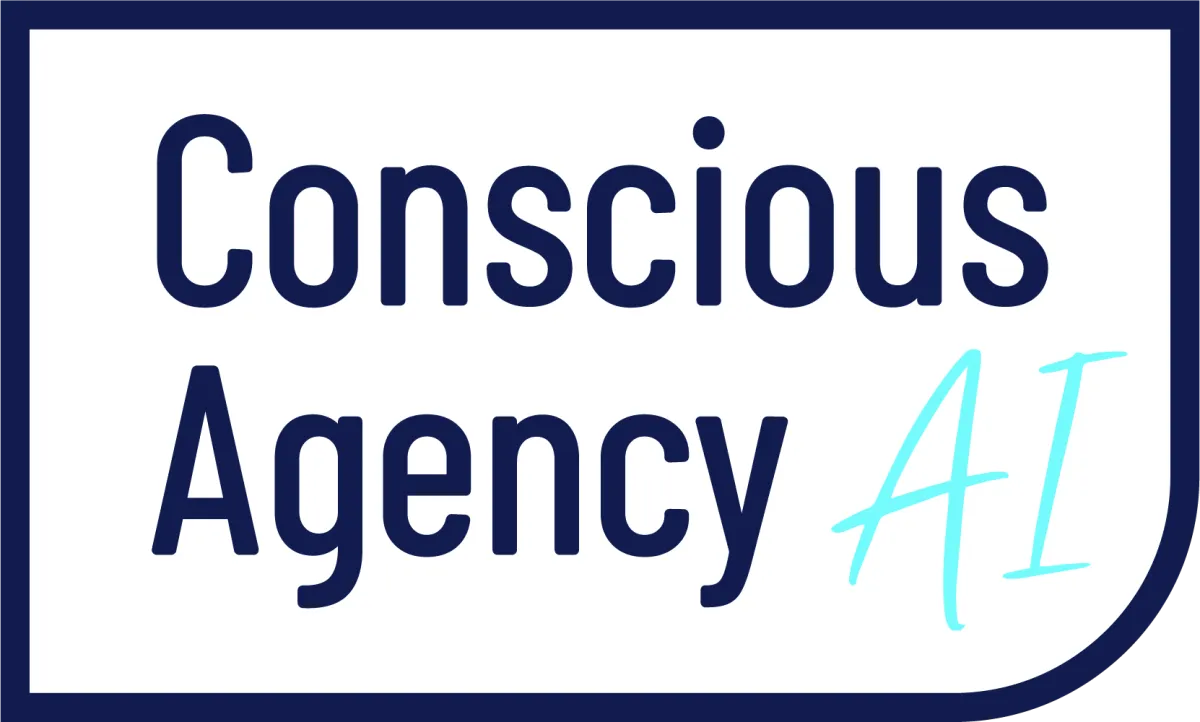
OpenAI Just Redefined What (or Who) ChatGPT Actually Is
The word "assistant" has vanished from OpenAI's internal documents.
A leaked strategy document reveals something more concerning than any algorithm update or pricing change. OpenAI now refers to ChatGPT as an "intelligent entity" rather than a tool or assistant.
The language shift signals a fundamental redefinition of what these systems actually are.
According to the internal document, ChatGPT is "an entity because it's personalised to you and available anywhere you go including chatgpt.com, our native apps, phone, email, or third-party surfaces like Siri."
Read that again. **An entity that follows you everywhere.**
From Assistant to Digital Shadow
The transformation from "assistant" to "entity" represents more than semantic evolution. It reveals a strategic pivot toward AI that doesn't just respond to queries but actively participates in your digital existence.
Traditional assistants help when asked. Entities exist independently, maintaining persistent awareness across platforms and contexts.
The leaked document outlines AI that "knows you, understands what you care about, and helps you with any task." This level of integration requires comprehensive data collection about preferences, behaviours, and patterns.
**The AI stops being something you use and becomes something that knows you.**
For enterprise leaders, this distinction matters enormously. When your team uses an assistant, they're accessing a tool. When they interact with an entity, they're forming a relationship with a system that retains, analyses, and applies everything it learns.
The Permanent Memory Problem
The entity model becomes more troubling when combined with recent legal developments.
A federal court order now forces OpenAI to retain all ChatGPT conversations indefinitely, including those users believed were permanently deleted under the company's standard 30-day deletion policy.
**Your deleted conversations aren't actually deleted.**
This creates a scenario where the AI entity maintains perfect, permanent memory of every interaction. Unlike human assistants who might forget details or conversations, these entities retain everything with perfect fidelity.
The implications for sensitive business communications are staggering. Legal discussions, strategic planning, financial data, and confidential client information all become part of the entity's permanent knowledge base.
Enterprise Exodus and Compliance Concerns
The corporate response has been swift and telling.
Following the court order, several companies paused OpenAI integrations. Healthcare providers questioned HIPAA implications. Financial institutions reopened vendor risk reviews. Software-as-a-service developers revised privacy policies.
**When your AI vendor can't guarantee data deletion, compliance becomes impossible.**
The entity model compounds these concerns. Traditional tools process data and discard it. Entities learn from data and retain it for future personalisation and functionality improvements.
This creates a fundamental conflict between AI advancement and data protection regulations like GDPR, which explicitly guarantees the right to be forgotten.
The Ownership Question
The shift to entities raises a deeper question about data ownership.
When you interact with an assistant, you're using a service. When you interact with an entity, you're contributing to its development and knowledge base. The boundary between user and contributor becomes blurred.
**Who owns the insights generated from your conversations?**
The leaked document suggests these entities will become increasingly sophisticated, using your data to improve not just your experience but the system's overall capabilities. Your business discussions become training data for a system that serves millions of other users.
This represents a fundamental shift in the AI value proposition. You're no longer just a customer purchasing a service. You're a data contributor enabling the entity's evolution.
Strategic Implications for Conscious AI Adoption
The assistant-to-entity transformation demands a strategic response from enterprise leaders.
**First, audit your current AI integrations.** Understand what data flows into these systems and what retention policies actually govern that data. The gap between stated policies and legal requirements is widening.
**Second, develop AI governance frameworks that account for entity-level AI.** Traditional vendor risk assessments assume tools that process and discard data. Entity-level AI requires different evaluation criteria.
**Third, consider the compliance implications of permanent data retention.** Industries with strict data protection requirements may need to limit AI integration or develop alternative approaches.
The future of AI lies in increasingly sophisticated entities that blur the line between tool and participant. The question isn't whether this evolution will continue, but whether organisations will adapt their governance and risk management practices to match.
The Path Forward
I'm not suggesting we abandon AI development or return to purely transactional tools.
The entity model offers genuine advantages in personalisation, efficiency, and capability. But conscious adoption requires acknowledging what these systems actually are and designing governance frameworks accordingly.
**The AI assistant is dead. The AI entity is here.**
The question is whether your organisation is prepared for what that means.
Enterprise leaders who understand this shift early will develop competitive advantages through conscious AI adoption. Those who continue treating entities like assistants will face compliance challenges, data governance failures, and strategic blind spots.
The leaked document reveals more than OpenAI's product strategy. It exposes the fundamental transformation of AI from tool to participant in business operations.
**Your next AI conversation isn't with an assistant. It's with an entity that will remember everything forever.**
Plan accordingly.

